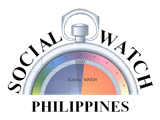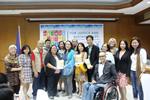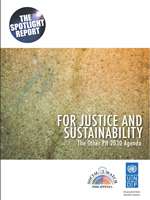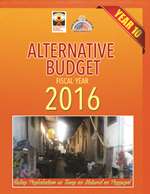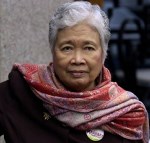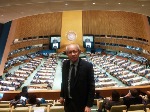Philippines
|
Source: . Published on Mon, 2016-07-18 00:00
MUCH is made of the public-private partnership (PPP). This is where the public and private sectors combine to produce outcomes which are favorable to the nation. In practice, this has meant Luzon-based transportation infrastructure projects. Visayas and Mindanao have been largely left out. President Duterte will change this. Which is partly why a whopping 62 percent of Mindanaoans voted for him. In a presidential contest where there were four highly supported candidates, this is a remarkable mandate. |
Published on Sat, 2016-07-09 08:22
While more than 26.3 percent or about 27 million Filipinos live in poverty, the benefits from growth are concentrated in the hands of few billionaire families, the less than 1 percent who dominate the political economy. Tax injustice is imbedded in the system and unregulated corporate activities harm people and the environment. The Philippines can reduce inequality by changing the economic geography. We can reverse the big city-oriented development by supporting the provincial and local economies. We can do this by shifting from conventional, fossil fuel-intensive farming to organic and sustainable agriculture and by changing the pattern of public expenditure so that adequate resources, and authority, too, are deliberately transferred from the rich regions to the poorer ones. |
Published on Fri, 2016-07-08 18:15
Signing up to the promise of a Philippines where no one is left behind and following the path to sustainability, Social Watch Philippines (SWP), along with the CSO contributors from its network, presents on Friday our "Spotlight Report" on the 2030 Development Agenda in a dialogue with the National and Economic Development Authority (NEDA) at SEAMEO-Innotech, Quezon City. This is in time for the presentation of the Philippine report to the first High Level Political Forum (HLPF) on July 11-20 at the UN Headquarters in New York. In consort with 22 other countries, the Philippines is expected to lead the national review and report on how the 2030 agenda will be translated into national sustainability plans. |
Published on Fri, 2016-07-08 18:06
The Philippine economic growth is unjust and not sustainable, as the nation's wealth is concentrated among few billionaires and highly dependent on fossil fuels, according to Social Watch Philippines. "A just and sustainable growth ensures that no one is left behind," Isagani Serrano, SWP co-convenor and Philippine Rural Reconstruction Movement president, said on Friday. The civil society group noted the Philippines can achieve its sustainable development goals by 2030 if the economic growth is not concentrated in the hands of a few billionaires. |
|
In 2015, the Philippines joined the UN community in pledging to put an end to poverty in all of its forms and achieve the 2030 Agenda for Sustainable Development by 2030. That same year the Government also signed up to reducing vulnerability to risks from disasters (Sendai Framework), to contribute its share in averting climate catastrophe (Paris Agreement), and to ensuring that all these commitments get sufficiently financed (Addis Ababa Action Agenda).
Ending poverty and achieving sustainable development are aspirations long overdue in realization. The challenge is how to realize these goals in 15 years after so many years of trying to deliver on virtually the same set of promises, and failing. If the Philippines is to deliver on the more ambitious 17 SDGs in 15 years when it could not fully deliver on the minimalist MDGs during the last 15 years, it needs to recognize and confront serious obstacles, both external and internal, to achieving these goals.
|
|
Source: . Published on Fri, 2016-07-08 00:00
The Philippine economic growth is unjust and not sustainable, as the nation's wealth is concentrated among few billionaires and highly dependent on fossil fuels, according to Social Watch Philippines. "A just and sustainable growth ensures that no one is left behind," Isagani Serrano, SWP co-convenor and Philippine Rural Reconstruction Movement president, said on Friday. |
Published on Fri, 2016-07-01 00:00
“For Justice and Sustainability: The other PH 2030 Agenda” Introduction The Philippines will be free of poverty and will be well on the way to sustainability by 2030. No one will be left behind. That’s the promise, that’s what our government signed up to in 2015. This report, our report, entitled “FOR JUSTICE AND SUSTAINABILITY: The Other PH 2030 Agenda”, is about taking on our government on that promise. It is an attempt by Social Watch Philippines (SWP) to present its view of the stubborn Philippine development dilemma and how it may be overcome. Through this report we offer our support and cooperation in figuring out the sustainability problem and finding lasting solutions to the cyclical problems of high poverty, high inequality and continuing environmental degradation despite or because of economic growth. |
Published on Fri, 2016-05-06 12:33
It has been a decade since Social Watch Philippines (SWP) convened the Alternative Budget Initiative (ABI). The consortium has now blossomed to around one hundred and sixty strong civil society organizations and individuals conducting research and lobby efforts in coming out with annual budget analysis, campaigning against lump sum funds, and engaging the national government and the legislature in the budget process by coming out with a civil society-crafted alternative budget, otherwise called as the Orange Book. Throughout the years, the effort of the consortium to directly engage through the budget process has led to the forging of partnerships with concerned agencies and champion legislators, expansion of the ABI network to more organizations and individuals who share SWP and ABI’s development vision through budget advocacy, and the continuing presence of the ABI in House and Senate to present alternative budget proposals. |
Published on Thu, 2016-03-03 17:52
With huge money comes huge accountability. For Leonor Briones, lead convenor of Social Watch Philippines (SWP), the billions of funds that would be poured into the soon-to-be-established Bangsamoro government should undergo thorough audit to ensure proper spending and hold specific people responsible for how the money is spent. By the reckoning of Moro Islamic Liberation Front (MILF) chief negotiation Mohagher Iqbal, the Bangsamoro government will get an initial funding of about P70 billion in its first year of operation, from various sources, including the block grant from the government. |
Published on Thu, 2015-10-01 08:58
Security was tight during the Papal address at the Opening Plenary of the UN Summit, so I missed these events as only a few civil society representatives could be accommodated, but certainly this was better than Addis Ababa during the 3rd Financing for Conference. The UN General Assembly formally adopted the Sustainable Development Goals (SDGs) at the opening session without further debate as the document had gone through months of debates ad revisions before Member States agreed on the final text. |


